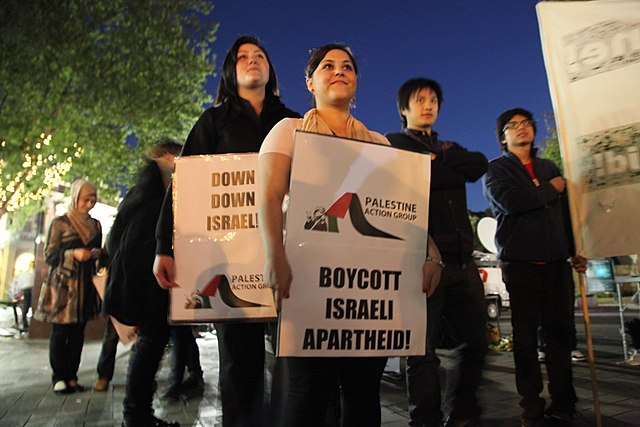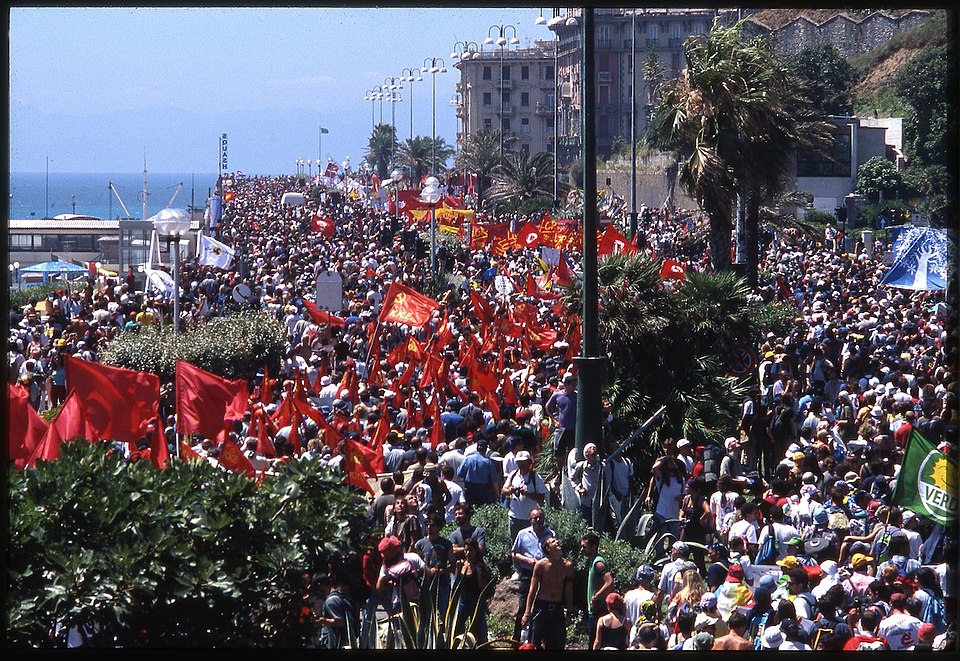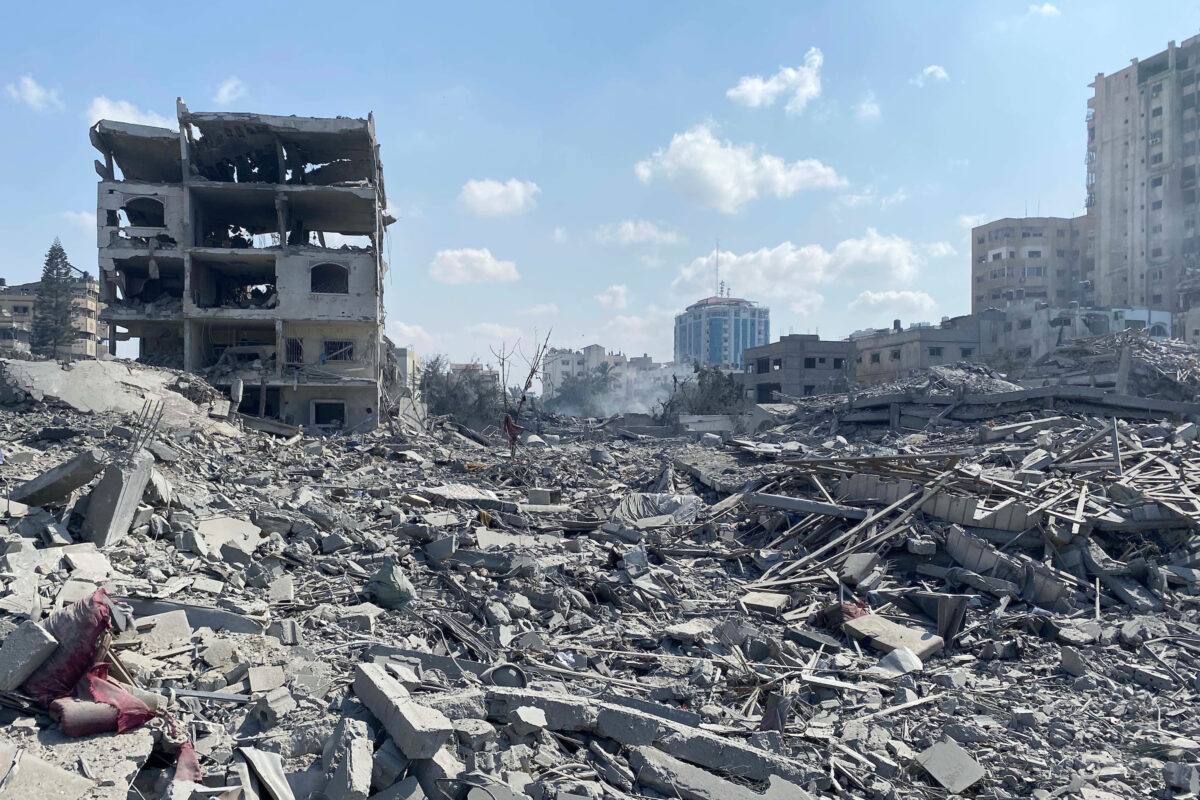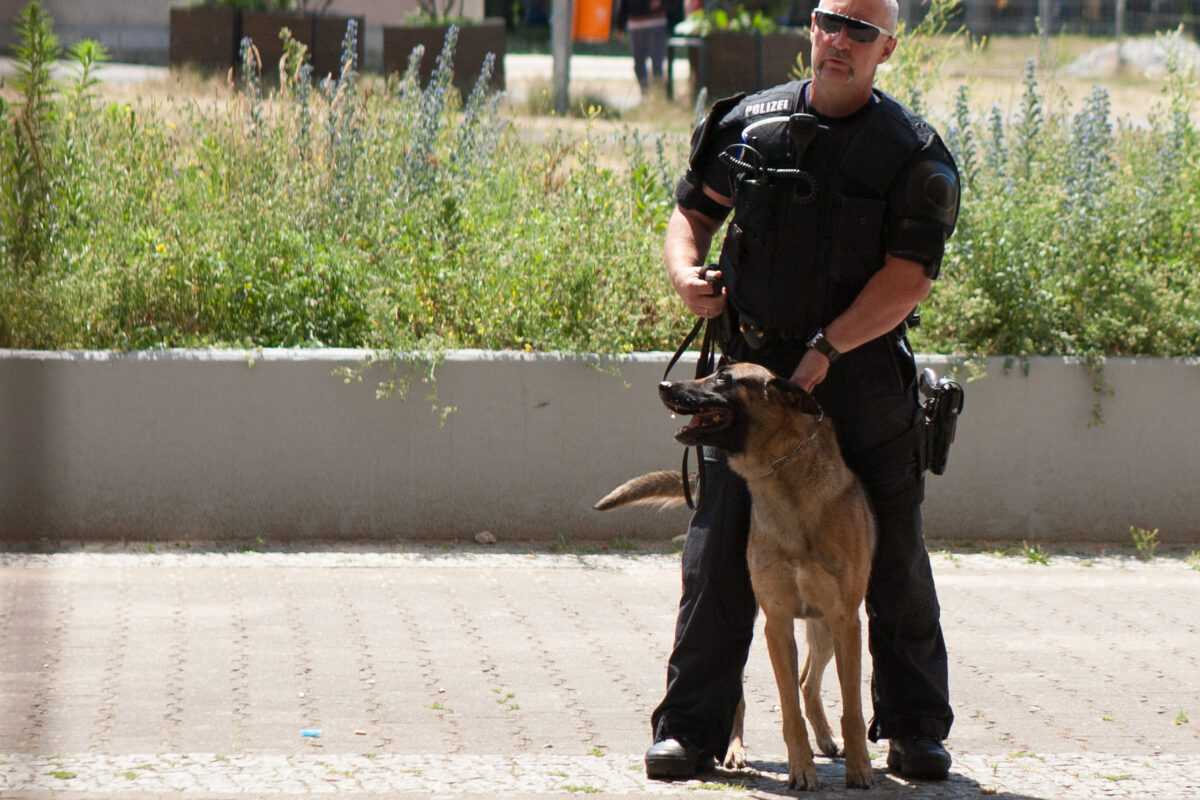I grew up politically in Great Britain in the 1980s. During this time, activists engaged in two main campaigns: domestic and/or international. The domestic fight was aimed against the Thatcher government–which included campaigns against unemployment, in defence of trade unions, and anti-war. While the international focus opposed the racist Apartheid régime in South Africa.
The Boycott Campaign against South Africa
To set the scene, Nelson Mandela was still in jail and the Thatcher government was a proud supporter of the Apartheid government. Conservative activists wore badges which read “Hang Nelson Mandela”. Many of these conservative activists later went on to become MPs for the British government.
The central focus of our activities in Europe was the boycott campaign called by the ANC (African National Congress), which targeted corporations that supported the Apartheid. Our goal was to promote public awareness about the corporate Apartheid support. We organised regular picket lines outside Barclays Bank locations. We made frequent visits to the supermarkets, where we featured South African products (such as oranges), and covered them with leaflets which read “don’t buy racist fruit”.
What’s the point of this history lesson? There are two main reasons. First, an effective campaign must start somewhere. In the 1980s there was no certainty that people would support a campaign against racism in South Africa. At that point Thatcher had won three elections, although she stood clearly on the side of the oppressor.
Nonetheless, we were able to build a campaign which made a small contribution towards freeing Nelson Mandela. In London, there were two large concerts for Mandela – for his 70th birthday in 1988 and in 1990, after he was finally released. By the end of the 1980s, only hardcore racists were against Mandela and the ANC. A few years earlier, it was quite different.
The initiative for BDS came from Palestine – from all relevant organisations from Civil Society. From the very beginning, veterans of the campaign against Apartheid in South Africa were also part of the Palestinian BDS campaign. People like Ronnie Kasrils, one of the few white and Jewish ministers in Nelson Mandela’s first government. It is noteworthy to mention that Post-Apartheid South Africa remains one of the loudest supporters of the BDS campaign.
But isn’t Germany different?
Well the answer is: Germany is different, but it also isn’t. Some might say Germany is clearly different because of apparent German responsibility towards Israel. Yes, absolutely. However, due to this German responsibility, it directly affects the possibility of building a successful mass movement here to boycott Israel. But I believe that we need to make a clear distinction between strategic and moral decisions.
A moral argument says, for example: because I don’t like the Chinese (or Sudanese, or US, or who knows which) government, I will stop buying products from these countries. To be clear, I don’t like any of these governments, but my decision as an individual not to buy particular products would be ineffective substitutionism.
It may be that it makes me feel good when I buy (or don’t buy) certain products–but without a mass campaign, this has little political effect. The Chinese (or other) economy will not be endangered, when myself and a few of my friends decide against buying certain products.
This why the article’s title: “Does BDS have a chance in Germany?” is not really the central question. Instead, I believe the question that demands our attention should be: “how can we change the underlying conditions and the public discourse so that BDS is possible here as a mass campaign, a campaign which goes far beyond the small circle of people who currently stand in solidarity with Palestinians?”
The Strategic Argument
In Germany, this dilemma is ambivalent. On the one hand, a mass campaign exists–but on an international level. Important trade unions, cities and also companies have made honourable commitments – following pressure from below – that they will no longer buy Israeli products.
At the same time, such a mass campaign would be difficult in Germany. Exactly because of German history – and the false interpretation of this history by supporters of Israel – I don’t believe at the moment we are able to create a mass BDS campaign in Germany.
Allow me to demonstrate my point by exploring two areas where I am currently politically active. The LINKE Berlin Internationals, the group of which I am co-speaker, which organises non-German activists in Berlin, and die LINKE Wedding, where I’m an ordinary member.
In the LAG Internationals, everyone is clearly for BDS. This is not unimportant. When people say, there is no one in Germany who supports BDS, our group is a good counter-example. And yet, within the “German German” Left, you can’t get around any discussion related to the topic of German responsibility.
In Wedding, our LINKE branch holds half-way decent positions on Palestine – against the demo ban on Nakba Day, against police repression, and recognition of the oppression of Palestinians by the Israeli State. This summer we plan to continue discussions regarding further possible positions and actions.
But one thing is certain–die LINKE Wedding will not call for BDS. Why not? Because some argue BDS can make it harder to open up a conversation with others who do not yet stand on the side of the Palestinians. I won’t say more about this here, as I’m speaking at a conference focused on how we can shift the discussion in Germany. What remains especially noteworthy here are the current state of things in Germany, even in the most progressive part of the German Left.
What can be done?
Doing nothing is certainly not a solution. First, we are faced with an important defensive fight. The experiences of Nakba Day demonstrate that the German government – and the Berliner Senat under Franziska Giffey – are increasingly ready to ban all actions which help support Palestinians.
The BDS Resolution in the Bundestag had no legal relevance. And yet the resolution has led to an unprecedented amount of speakers being “uninvited” and a noticeable rise of even more censorship. Demonstration bans, the sacking of 7 Palestinian journalists at Deutsche Welle, or the witch hunt against Palestinian academics like Anna-Esther Younes–all reflect the impact of silence taken by the German Left, which has allowed the German right wing to go onto the offensive.
Furthermore, allow me to share one example among many. In Berlin, the LINKE Internationals, Palästina Spricht and the Jüdische Stimme planned to organise a meeting on the subject “How much is it possible to talk about Israel/Palestine in Germany?”. However, our question was answered loud and clear when the venue where the meeting should’ve taken place, told us that if our meeting occurred, the venue would lose their funding from the Berliner Senat.
That wasn’t even the end of it. The cancelled meeting should have been part of the anti-racist festival “Offenes Neukölln”. The organisers of the event uninvited us from participating in the festival because “it might be possible that antisemitic statements would be made”. Despite our inclusion of Wieland Hoban, a board member of the Jewish Voice for just peace in the Middle East, who was a planned speaker for our meeting.
All attempts to criminalise BDS only help the right wing, and those who crave more control in the State. Even if you are not convinced that you must support the struggle of the Palestinians, you should nevertheless fight against all forms of criminalisation. As German Pastor Martin Niemöller nearly said, “first they came for the Palestinians, and then there was no-one left to speak out for me.”
What can we do concretely? (1) Unambiguous fight against bans
What is clearly evident is that repression is on the rise, and BDS is often used as justification for this. As a reaction to this, some Leftist have said, “Of course we’re against repression and room bans, but BDS does sound like ‘Kauf nicht bei Juden!” This reaction is – shall we say – insufficient.
I remember the reaction of some Leftists in the British Labour Party when an “antisemitism crisis” was fabricated. They apologised for cases of antisemitism that never happened. They accepted the argument that Labour was particularly antisemitic, although all statistics spoke against this argument.
The hope was that the apologies would cause the attacks to disappear. The problem was their attackers were not motivated to fight antisemitism, instead sought any attempt to break Jeremy Corbyn – possibly the only truly left-wing leader Labour has ever had. The more Labour apologised, the more it fuelled accusations of antisemitism.
What we are witnessing now, is a similar attack on BDS in Germany. It’s not about antisemitism – if it were there would be similar bans for the AfD, and other true antisemites. Instead, the attack on BDS in Germany is actually about destroying solidarity for Palestine.
This is why we must declare, with conviction, that BDS is a legitimate strategy that has been and is practised across the world. If it’s good enough for Desmond Tutu, it’s good enough for us. It is necessary but not sufficient to merely oppose meeting room bans because of a liberal worry about censorship. Refusing rooms to people on the grounds that they support BDS is an attack that can in the future be used against other left-wing meetings.
What can we do concretely? (2) Heidelberg Cement and the German Army
What else can we do? We must also fight against all forms of support of the Apartheid State. And this fight requires boycotts, disinvestment and sanctions, even when many people do not want to use the term “BDS”.
Let’s take Heidelberg Cement for example. Through its subsidiary, Hanson Israel, Heidelberg Cement owns the environmentally dangerous Nahal Raba quarry, which steals Palestinian land and deals with illegal settlements. Heidelberg Cement is also involved in building the Apartheid wall, as are other German companies like Siemens.
Personally I don’t buy cement, but I absolutely support any campaign which makes clear Heidelberg Cement’s support of Apartheid and calls on societies to divest. This is no mass campaign, but something that is possible in Germany on a low-level.
Even more important is to apply pressure on the German government and German industry to stop military support for Israel. End the delivery of submarines. Cease the joint manoeuvres. It is not Germany’s reason of state to arm and support an army of occupation.
What can we do concretely? (3) Support the International Campaign
The BDS campaign will continue on the international level, irrespective of what happens in Germany. The German Left must recognise and welcome this.
We internationals in Germany have a special role, to demonstrate that another way is possible. But we can’t manage this on our own. We need a change of belief and practise in the German Left so that we are able to come out of a defensive position.
When musicians like Young Fathers, Brian Eno and Gwenno boycott the Pop-Kultur festival because of the involvement of the Israeli embassy, this should be a signal to the German Left that something strange is going on here, and that BDS is a growing international campaign.
We must – slowly but surely – import this campaign into Germany. Let us work together to avoid Germany, once more, standing on the wrong side of history.
This is a rough translation of a speech that I made at a panel at the Marxismuss conference in Berlin on 5th June 2022. A video of the meeting is available on the Public Solidarity website.
On Sunday, 26th June, Farah Marqara, one of the 7 journalists sacked by Deutsche Welle will be speaking at the LINKE Internationals Summer Camp about “The fear of criticising Israel. Is the German media free?”.




